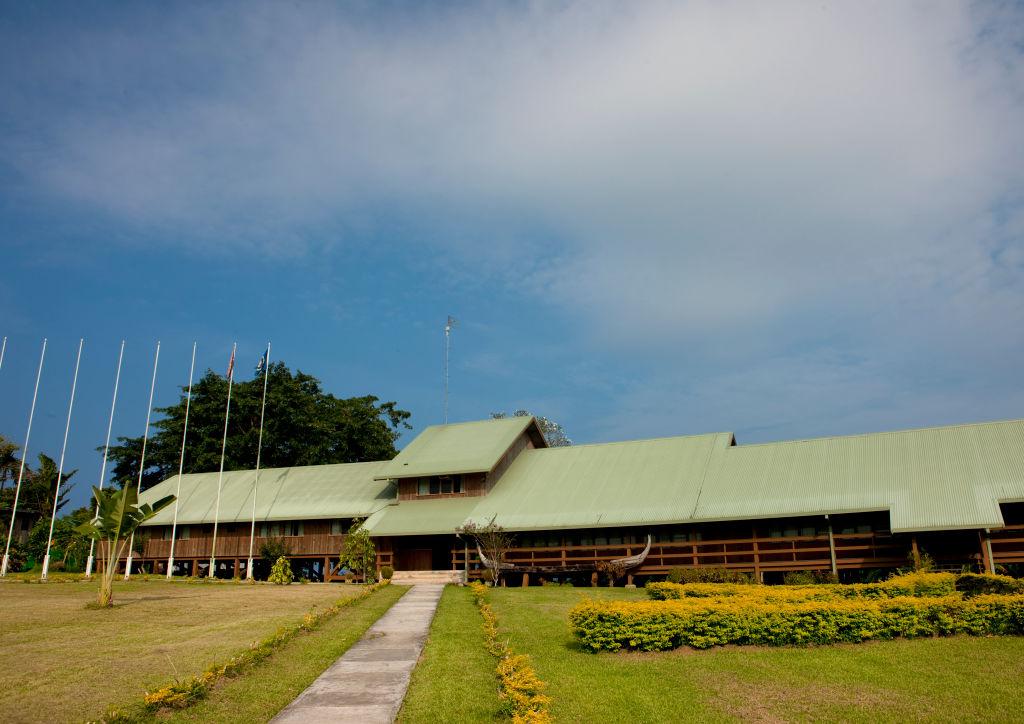
An engaged and informed community is important for governance, development and an effective democracy at any time, but that’s especially so in Bougainville right now. The island is in a sensitive political moment as it recovers from conflict and seeks to achieve its independence.
When the people of Bougainville voted overwhelmingly for independence in 2019, many expected their wish to be granted. Some thought it would happen overnight. However, the result wasn’t binding, and what comes next is still being negotiated by the Papua New Guinea and Bougainville governments.
How the people of Bougainville will react if their wish is rejected is unpredictable, but with 98% of voters having cast their ballots for independence, there are credible fears that old wounds could be reopened, with potentially violent consequences.
To prevent this, the Bougainville government must communicate effectively or its people will be disappointed and confused. They’ll want to know their options if negotiations break down and Bougainville remains part of PNG. They’ll need that information even more if the government decides to unilaterally declare independence.
A former adviser to the Bougainville government during the peace process, Australian academic Anthony Reagan, believes James Marape’s PNG government might be preparing to walk away from the discussions, despite the referendum being ‘the only test for what is required under the Peace Agreement’. Meanwhile, Bougainville President Ishmael Toroama has said he expects independence by 2027 at the latest. Marape has a different view, describing the issue as the greatest challenge facing PNG and maintaining that the national parliament needs to vote on the decision.
If PNG declines to grant Bougainville its independence, the island has threatened to unilaterally declare independence to establish a new state. That would leave it isolated internationally, especially at first, and without funding from the central government. Currently, Bougainville secures just 6% of its budget revenue by its own power, with the rest coming from the central government in Port Moresby.
The legacy left by 10 years of civil war in Bougainville has been conflict, trauma and, in particular, censorship. Many citizens remain in the dark about these critical issues. The fragile media situation in Bougainville is made worse by low literacy rates in the area, which have left many uneducated.
Media infrastructure is an issue too. As it stands, there’s no way for the government to talk to all of its citizens at the same time, nor does much information about Bougainville reach the rest of the world. The province is nearly ignored by the international media, partly because of the excessive cost of sending journalists there on assignment.
Before the conflict, radio was the main method of communication between the government and ordinary islanders. It remains an important source of information, though transmission is limited to urban areas, and mobile phones are becoming increasingly popular.
National Broadcasting Corporation Bougainville is part of the provincial station network of PNG’s run-down national broadcaster. It was once able to reach an audience across Bougainville reliably via a newly built shortwave transmitter, but it was shut down during the fighting and hasn’t been restored.
There are conflicting reports about the current state of the transmitter, but NBC Bougainville says it is off air. The network still broadcasts to some of Bougainville, but on the FM frequency, which is only available in urban centres and doesn’t reach remote populations.
That said, its Facebook page is popular, with 10,000 followers, and attracts a significant audience from outside Bougainville despite unreliable internet and intermittent power supplies. It has also started experimenting with posting daily news on WhatsApp.
There are also several citizen blogs on Facebook that cover current events. Bougainville Forum has roughly 18,000 members, the Voice-Bougainville around 13,000, and Bougainville Updates a more modest 1,300.
There is also an independent and privately owned radio station, New Dawn FM, which receives some funding from the Bougainville government. It broadcasts via satellite from Buka to Arawa on the eastern side of the island, reaching urban audiences. Like NBC Bougainville, however, it doesn’t reach people in remote areas.
The station wants to expand to cover Nissan to the north and Torokina to the west, but says it is owed 800,000 Kin (around $341,000) by the government for broadcasting parliament since 2016.
Another major issue preventing debate about governance, social and economic issues on radio is the reluctance of Bougainville ministers to appear in the studio to take live questions from an audience.
Although both stations report on the activities of the government, ministers don’t give people the opportunity to ask questions that scrutinise the work of the government. NBC Bougainville says it can’t remember a minister appearing in the studio for talkback radio in the past three years.
As for print media, the Post Courier is printed in Port Moresby, but only about a thousand copies are sent to Bougainville according to local journalists. In this precarious situation, citizens have little information about or connection with events that will greatly affect them—and that is simply not good enough.